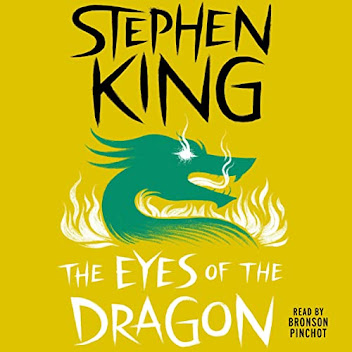HOW SHOULD WE THEN LIVE: THE RISE and DECLINE of WESTERN THOUGHT and CULTURE (audiobook) by Francis A. Schaeffer
Originally published in 1976
Published by Christianaudio.com
Read by Kate Reading
Duration: 7 hours, 51 minutes
Presbyterian minister and philosopher Francis A. Schaeffer's How Should We Then Live? is a history of the West and a fairly sophisticated bit of Christian apologetics wrapped up in a fairly small package. At times this book rolls along at an enjoyable pace and is quite the listen, other times it is much more difficult.
Here is a listing of the chapters:
Published by Christianaudio.com
Read by Kate Reading
Duration: 7 hours, 51 minutes
Presbyterian minister and philosopher Francis A. Schaeffer's How Should We Then Live? is a history of the West and a fairly sophisticated bit of Christian apologetics wrapped up in a fairly small package. At times this book rolls along at an enjoyable pace and is quite the listen, other times it is much more difficult.
Here is a listing of the chapters:
- Chapter 1: Ancient Rome - Schaeffer compares Roman pagan beliefs with Christian beliefs and blames the pagan beliefs for the collapse of the Empire - they were not inclusive enough and the Greco-Roman gods were little more than bigger people with the same issues that all people have.
- Chapter 2: The Middle Ages - Despite its reputation, the Middle Ages had positive points. Threads of Classical thought were re-discovered and fused to Christian beliefs.
- Chapter 3: The Renaissance - Schaeffer offers up the Renaissance and the Reformation as competing thought processes about man and his relationship to God. The Renaissance is essentially the re-birth of Greco-Roman humanist thought with a Christian veneer.
- Chapter 4: The Reformation - Explores the art and culture of The Reformation and compares them favorably to that of the Renaissance.
- Chapter 5: The Reformation – Continued - Looks at the philosophy of the Reformation and how even non-Christian thinkers of the time were influenced by Christian thought.
- Chapter 6: The Enlightenment - Human-centered thought leads directly to the excesses of the French Revolution.
- Chapter 7: The Rise of Modern Science - Science's foundation came from confidence that God had created an orderly world that we could understand.
- Chapter 8: The Breakdown in Philosophy and Science - Philosophy and art are symptoms of the thought processes that are now permeating science.
- Chapter 9: Modern Philosophy and Modern Theology - Humanism creeps into theology.
- Chapter 10: Modern Art, Music, Literature, and Films - Schaeffer offers commentary on several "modern" works.
- Chapter 11: Our Society - How the values of personal peace and affluence have worked their way into our society.
- Chapter 12: Manipulation and the New Elite - Is an authoritarian state ruled by elites coming as a natural result of Humanist values.
- Chapter 13: The Alternatives - Schaeffer makes the argument for a return to Christian values.
The audiobook is quite enjoyable until Chapter 8. I was not a fan of the discussion of all of the different philosophers. The commentary on current movies, art, music and literature are stilted seeing as how the book was originally published in 1976. There is no discussion of Heavy Metal, rap, hip-hop, Star Wars, the current trend towards super hero movies or celebrity pop culture authors like Stephen King. His discussion of modern science is similarly stilted. It's not his fault, it's just the reality of listening to a re-released book.
So, do I buy into what Schaeffer is arguing?
Yeah, mostly. Once you get past the fact that he is still talking about hippies it's still pretty solid.
Yeah, mostly. Once you get past the fact that he is still talking about hippies it's still pretty solid.
Kate Reading's narration was neither good nor bad. She did not hurt the interesting parts and did not make the slower parts better.
I rate this audiobook 4 stars out of 5. It can be found on Amazon.com here: HOW SHOULD WE THEN LIVE: THE RISE and DECLINE of WESTERN THOUGHT and CULTURE by Francis A. Schaeffer.
Reviewed on November 17, 2014.











Comments
Post a Comment